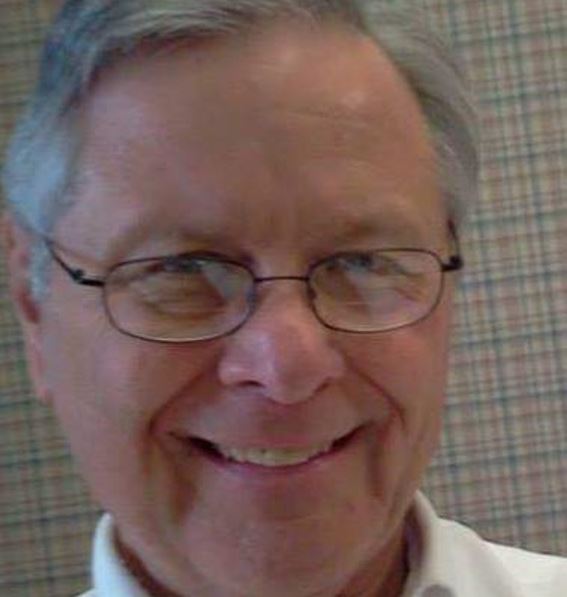Ask yourself: how might a small congregation’s willingness to change actually be assets for innovative ministry that impact the community?
Our Savior’s is a small congregation in a city of less than 8,000 people surrounded by farmland. In 1981, a few committed Christians officially became a congregation of the American Lutheran Church. After a few years of worship at a school, Our Savior’s built a small church building and paid off the mortgage in seven years. The sanctuary is furnished with movable chairs and seats 70 people. A curtain can be pulled at the rear of the sanctuary for learning or meeting space. There is a classroom for children, a small kitchen and two offices.
How can change help our community?
At the beginning of my time at Our Savior’s, I heard comparisons with the larger churches in town. Members said they didn’t have the numbers, the space, or the money to do what the big churches do. Fortunately, the text for my first preaching Sunday was Matthew’s “Feeding of the 5,000.” I asked that they think hard about what they have that they can offer for Jesus’ blessing. I already knew that they had two significant assets: They had taken many risks in the past and were very comfortable with change.
For example, it was a huge risk to organize in the first place. They took the risk against advice from the national church. Change was a constant. The first pastor was all about change. He had the sanctuary rearranged almost every week. They didn’t know what to expect from week to week, so change became a part of the congregation’s personality. On Christmas Eve, they worshiped in a barn. Hay bales provided seating and mice joined the worshiping assembly. The congregation had a spirit of innovation from the beginning of their mission church experience.
Other assets were less recognizable, because we sometimes label them as deficits.
Our energy is directed outward
Our church members are very involved outside of the church in service motivated by our faith. This means that “in-house activities” are few, but we are living out our faith around the community. Our members had careers (many are retired) or are active volunteers helping those in need. We participated in feeding ministries, care for domestic violence victims, youth at risk, prevention of animal cruelty, Twelve Step programs, nursing, mental health agencies, schools, as well as care for people who have been incarcerated, and for the elderly. We are present in all those places with less than thirty people, the majority of whom are senior citizens.
Part-time “professional” leadership leads to connections and delegation
I had been on leave from call and teaching leadership full time for a manufacturing company. In addition, I taught a few hours of communications for a two-year college. In 1998, Bishop James Rave called and asked me to go to Our Savior’s in a part-time interim role. He wanted me to help the congregation decide if they wanted to close. I expected to be there for three to six months. I’ve been with them ever since, now in a one-third time call. I spent two-thirds of the time continuing as an adjunct professor and business consultant. It turns out that was an advantage. In recent years, because of those relationships outside church, the Fresh Expressions movement made perfect sense.
My secular teaching experience was invaluable. My bio did not include that I was an ordained minister. I did not use any “in-house” church language but wanted my students to experience Jesus in my classes. There were many after class conversations about their value and life’s direction.
In my preaching I began to describe people who wanted a place to talk about their lives. I said that they seemed to hunger for Jesus, but they did not know it was Jesus. And, sadly, they might not always find Jesus in a church.
Community change embraced by our synod
The COVID-19 pandemics put an end to my secular teaching. But it opened a new door for Our Savior’s. While the building was closed, we were joined in Zoom worship by people who didn’t even live in our small town. As we were getting better at virtual worship, the Northwestern Ohio Synod launched a new initiative. A brief “On the Way” video invited congregations to participate in a way to reach the people outside the church. There was a link to a virtual training session led by Dr. Michael Beck about the Fresh Expressions movement. I must have watched it at least three times. (Our synod uses the name New Communities rather than Fresh Expressions.) I was sure that was the paradigm shift we needed. While we needed to maintain and even improve the traditional church, we could gather people outside of the building.
A team attended a five-session learning experience led by our synod staff and Michael Beck. Two of the team members were Zoom worshippers, one from an hour and the other two hours from Our Savior’s. The synod staff created an atmosphere of grace and freedom for innovation within our context. The paradigm shift was complete, and we were ready to change our community from within.
Claiming our identity as change agents
From Michael Beck’s book, The Five Congregational Personality Types: An Ancient Pathway for Congregational Renewal in the 21st Century (2023) we learned that we are an “Outreach Congregation.” We reach out and help. And it’s with the people we help that we can plant the seeds for change within our community.
Now our church looks like a small group meeting at a picnic table behind an agency. They talk about the highs and lows of the week, pray, and maybe hear a related Jesus story. Another group of homeless people will meet in a park and follow the same format. They both can grow into a beautifully messy church. We will soon begin a recovery worship service for those in Twelve-Step groups who are without a church home. The possibilities are seemingly endless and the people know it. We will continue to offer what we have for Jesus’ blessing. Then we will see where the Spirit leads us.



